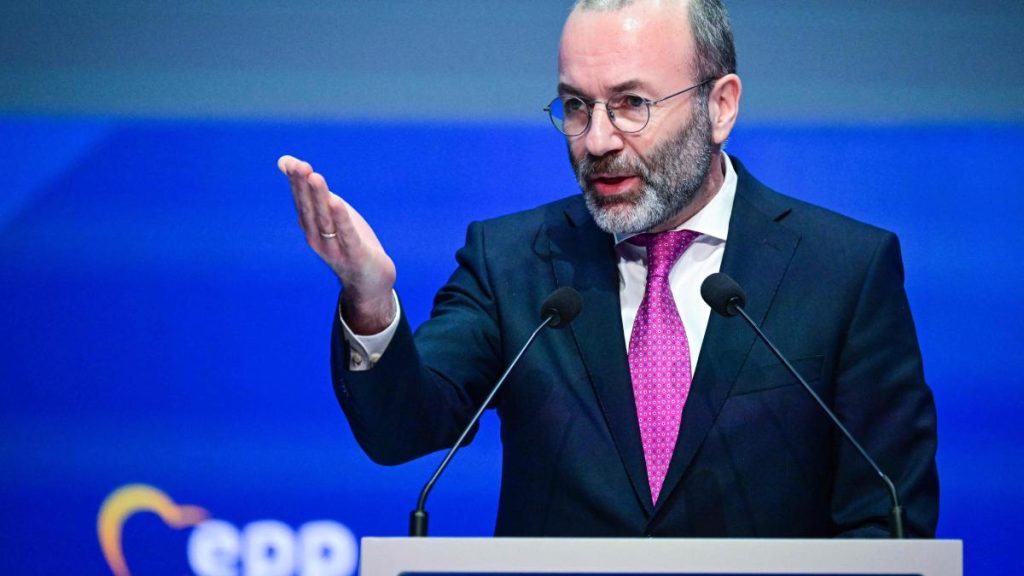The upcoming vote on the reform of the European asylum system in the European Parliament is said to be on the edge, according to Manfred Weber, the leader of the center-right European People’s Party (EVP) group. The Green party in the parliament is against parts of the package, adding to the uncertainty of the outcome. Negotiators from the European Parliament and member states have reached a text that is likely to be approved, with a debate and vote scheduled for Tuesday.
Weber criticized the Greens for their opposition to the asylum and migration package, accusing them of having a double standard by supporting certain measures in Berlin but boycotting them in Europe. On the other hand, Green migration expert Erik Marquardt argued that the reform will not limit migration, improve distribution, or simplify procedures. He also expressed concerns that the reform would allow countries with EU external borders to treat refugees even worse, leading to more suffering and secondary migration to Germany.
Weber, however, believes that the legislation package has the potential to reduce the number of refugees by giving authorities the power to decide who enters the country rather than leaving it to human traffickers. He sees fast-track procedures at the borders as a way to combat illegal migration. The reform proposes uniform procedures at the EU’s external borders and stricter treatment of people from countries considered relatively safe, who may be detained under prison-like conditions for up to twelve weeks while their asylum applications are processed.
Additionally, individuals coming from countries with recognition rates below 20% and those considered to pose a threat to public security would be required to go through this border procedure. The distribution of migrants among EU states would also be reorganized through a “solidarity mechanism,” with countries that refuse to take in migrants being required to provide support in the form of financial contributions. Overall, the reform aims to streamline asylum procedures and address the challenges posed by migration in a more unified and coordinated manner across the EU.


